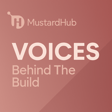
Gonzalo Sanchez on The Science (and Soul) of Stress
Gonzalo “Gonzo” Sanchez, founder of Everlast, is on a mission to change how we understand and manage stress at work and in life. Drawing from his experiences at Uber, Bird, and in telemedicine, he shares how Everlast uses wearables, biomarkers, and personalized roadmaps to help people unlock better health. Gonzalo and Curtis unpack the physiology of stress, emotional regulation, and why stress isn’t just psychological — it’s deeply physical. Gonzalo shares personal stories about hitting his own limits, the inspiration behind Everlast’s name, and how his team is reimagining stress as something to understand, not just suppress. It’s a fascinating conversation that blends science, storytelling, and strategy, giving leaders and individuals alike a new lens on well-being.
About Gonzalo:
Gonzalo is the founder of Everlast, a digital health company that helps people unlock their stress to live healthier, more fulfilling lives. Everlast’s core belief is that stress doesn’t just live in your head—it shows up in your body. By combining biomarkers, wearable data, and lifestyle insights, the team connects the dots and delivers personalized plans that work for each member. Before launching Everlast, Gonzalo led marketplace operations in the telemedicine space, building and scaling clinician networks. Prior to that, he spent nearly a decade at Uber and Bird, where he built high-performing teams and launched marketplaces across multiple regions.
